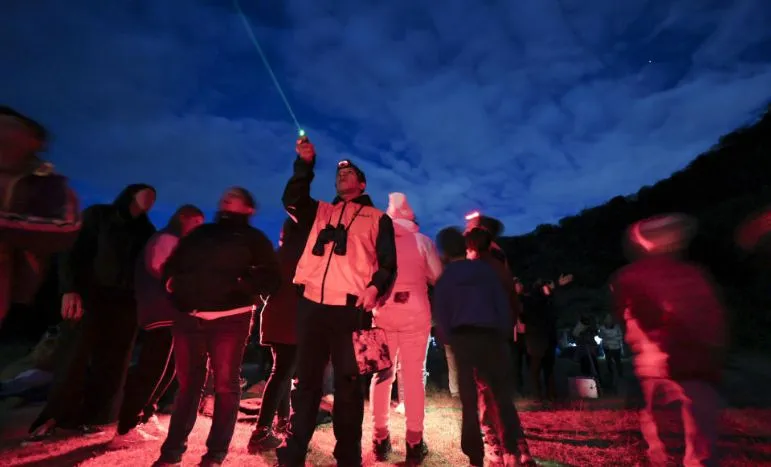Preserving the Night Sky: Joya-La Barreta Ecological Park’s Dark Sky Initiative
As twilight falls over Joya-La Barreta Ecological Park in Querétaro, Mexico, the soothing chorus of frogs creates a serene ambiance for amateur astronomers exploring the cosmos. Situated at an elevation of 8,520 feet (2,600 meters), this park has achieved a significant milestone: it is the first urban dark sky space in Latin America recognized by DarkSky International. Against the growing threat of light pollution, the park offers an unparalleled view of celestial wonders.
The Growing Threat of Light Pollution
Juan Carlos Hernández, president of Querétaro’s Astronomical Society, has spent over two decades championing the importance of preserving the night sky. Hernández laments the diminishing visibility of celestial objects such as the Omega Centauri cluster. A 2023 study highlights a concerning trend: artificial lighting brightens the night sky by approximately 10% each year. Today, over 80% of the world’s population lives under light-polluted skies, with urban areas in Mexico facing increasing challenges due to rapid development.
Light pollution’s impact extends beyond obscuring stars—it disrupts ecosystems and affects human health. Wildlife reliant on natural darkness for migration, reproduction, and feeding cycles experiences significant behavioral shifts due to artificial lighting. Human circadian rhythms are also affected, linking light pollution to sleep disorders and other health concerns.
Advocacy and Community Engagement
Joya-La Barreta’s designation as a certified dark sky park is a testament to community efforts led by local astronomers and environmental advocates. Hernández and his team actively engage the public, emphasizing the ecological and cultural importance of preserving dark skies. Environmental Secretary María Guadalupe Espinosa de los Reyes Ayala underscores the need for public participation in conserving these unique ecosystems.
As families gather under the park’s pristine skies, children like 10-year-old Matti González discover a newfound curiosity about the universe. Events hosted at the park combine education and advocacy, fostering a collective commitment to combat light pollution.
Challenges and Conservation Efforts
Despite its certification, Joya-La Barreta faces ongoing challenges from encroaching urbanization and inadequate light pollution regulations. Advocates are calling for stronger enforcement of Mexico’s General Law of Ecological Balance, aiming to mitigate the impact of artificial lighting. Proposed measures include implementing shielded lighting fixtures, reducing unnecessary outdoor illumination, and promoting public awareness campaigns.
Preserving the Night for Future Generations
Hernández reflects on the intrinsic connection between humanity and the cosmos, emphasizing the importance of preserving the night sky for generations to come. Joya-La Barreta serves as a symbol of hope, demonstrating that even in urban settings, dark skies can be reclaimed and protected.
Through sustained efforts and community engagement, Joya-La Barreta Ecological Park inspires a movement to preserve natural darkness, ensuring that the wonders of the universe remain visible to all.
For more information about dark sky initiatives, visit DarkSky International.











